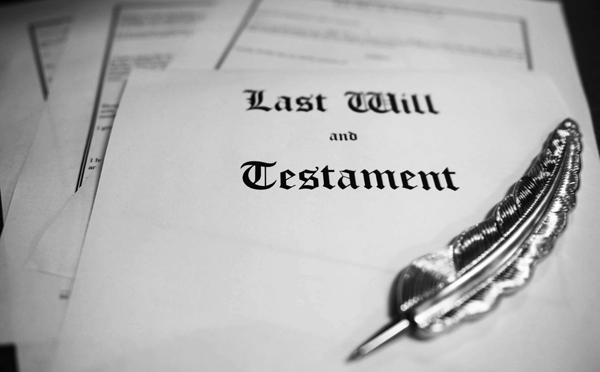
The U.S. Congress designated the third week of October each year as National Estate Planning Awareness Week (H. Res. 1499) in 2008 to help the public understand what estate planning is and why it is such a vital component of financial wellness.
Proper estate planning can prevent family members or your intended beneficiaries from being subjected to complex legal processes requiring significant expenditure of time and expenses, and greatly reduce confusion or even animosity among family members or other heirs upon the death of a loved one.
According to the National Association of Estate Planners & Councils, it is estimated that more than half of all Americans do not have an up-to-date estate plan. Estate planning is one of the most overlooked areas of financial wellness.
In the recent past, many families sought estate planning solutions to avoid adverse tax consequences. For example, in 2000, the federal estate tax exemption was only $675,000; currently, however, the federal estate tax exemption for an individual is $11.4 million and $22.8 million for a couple.
But, regardless of whether an estate is impacted by the federal estate tax, basic estate planning should be on every adult’s to-do list. A basic plan includes establishing financial and medical powers of attorney to make decisions if you cannot and deciding who will receive your assets upon your death.
There are certain documents that you should have, regardless of your health, wealth or age:
1. Durable Power of Attorney – Authorizes someone to act on your behalf in the event that you become unable to handle your financial affairs. The person you designate in the durable power of attorney can pay bills, file taxes, direct investments and make other decisions on your behalf. If you do not have a power of attorney and you become incapacitated your loved ones will be forced to go to court to establish a conservatorship to be able to make financial decisions for you.
2. Medical Power of Attorney / Advanced Directives – Allows you to specify the medical treatments you desire in the event you cannot express your wishes, and it appoints someone to make other medical decisions for you in the event of your incapacity.
3. Will – The will is the core of any estate plan, and it distributes your property as you desire after your death. If you die without a will, then disbursements are made according to Tennessee’s intestate succession laws, which might not align with your wishes. A will also names an executor to manage and settle your estate administration.
In addition to the basic estate planning documents outlined above, the following are some other areas that might warrant your consideration:
Do you have minor-aged children? If so, you will need to consider who you want to serve as guardian, and establish a trust for their benefit. It is ill-advised to leave assets intended for your minor children to a family member if both parents pass away, because that family member could be sued or die and you want your assets protected in a trust for their benefit, not at risk in the family member’s individual name.
Do you have a special needs beneficiary? If so, you do not want to disqualify them from public benefits. Therefore, you may need to establish a special needs trust.
Do you have a blended family? If so, the laws of intestate succession which stipulate how your estate passes at your death may not align with your wishes. Therefore, proper estate planning is critical.
Are you in a second marriage and have children from outside of the marriage? If so, you may consider doing a marital trust to provide for your spouse’s lifetime needs while controlling where the assets go at the surviving spouse’s death.
Do you have an irresponsible adult beneficiary? If so, you may consider leaving their inheritance in trust, which can still be used for their health, education, and support, while preventing the beneficiary from spending all of the assets at once.
How do I plan for asset protection? Given the constant change, uncertainty, and increase in litigation in almost every area of life, asset protection is more important than ever. Asset protection is an essential component of all estate planning and warrants the same level of thought as taxes and dispositive planning.
How do I terminate or modify an old trust? Tennessee’s laws provide a trustee (the person or entity responsible for the trust’s administration) with tools that allow the trustee to be proactive and flexible in administering the trust.
Finally, because wills, trusts and powers of attorney are legal documents, it is crucial that they be properly executed under Tennessee law and drafted by a licensed attorney who practices in this technical area.
___
Free Estate Planning Event:
For more information on estate planning and being prepared for death or the death of a loved one, join attorney Ashley Stearns for The Pulse Stops Here – an Estate Planning Conversation on Thursday, Oct. 10, from 6–8 p.m. at Cultivate Coworking, 107 W. Lytle St.
Begin the process of getting your important documents in order and ask questions about estate planning and other legal matters related to death.
The event is free to attend and includes appetizers and beverages, though attendees should register in advance on Eventbrite.
___












